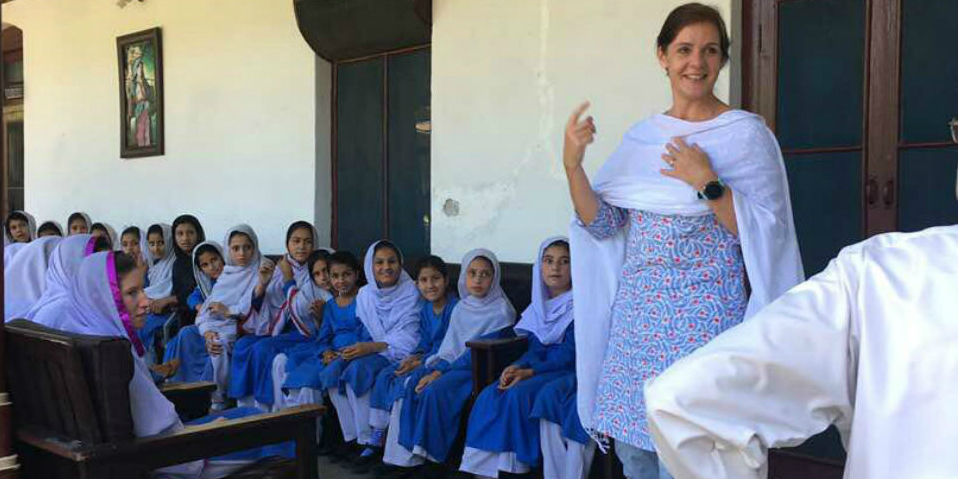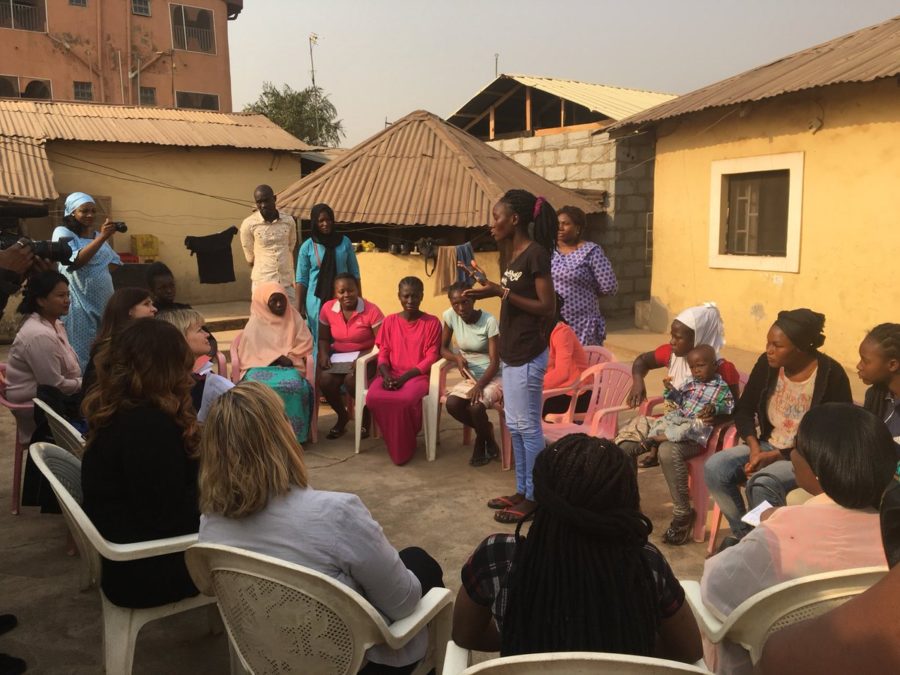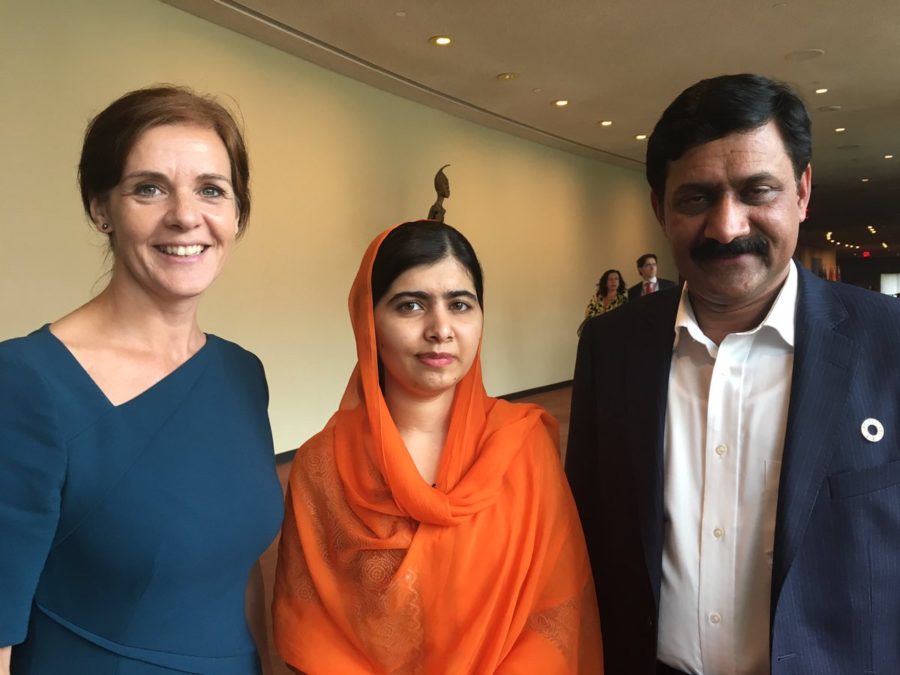10th April 2018 London, UK
One in three young people live in the Commonwealth: education is the key to their future

The Commonwealth Heads of Government Meeting will soon be upon us. A major gathering of representatives from 53 governments who look after 2.4 billion people – a third of the world’s population – over 60% of whom are 29 or under. It’s also an opportunity for the UK to demonstrate its commitment to this multilateral body and to demonstrate how we can work together to achieve transformational change on the ground.
One of the Foreign Secretary’s priorities for the summit – and it’s his personal priority – is to secure political commitment and practical action to ensure a quality education for children, especially for girls who are so often left behind.
Educating girls around the world
The global statistics are shocking. There are 1.1 billion girls of school age in the world but, according to UNESCO, over 263 million children and young people around the world, not solely in the Commonwealth, are out of school. Over 60% of the world’s illiterate population is female. Many more start school but for a number of reasons are not able to complete their education – lack of schools, or teachers, or books.
In some places, it’s not safe or close enough to walk to school. Other competing costs mean that education drops down in importance. Marrying young and having children of their own means that girls very often have to leave school. It is simply not right that girls are denied their education, their chance to have a better life and to break the cycle of poverty. For every girl unable to go to school, it’s a tragic waste of potential.
UK support for worldwide education programmes
The UK invests nearly £1 billion a year into education programmes around the world, supporting 7 million children to gain a quality education between 2015 and 2017. The UK government has just launched the renewed Education Policy and increased our contribution to the Global Partnership for Education. There is a strong emphasis on girls, including those least likely to be able to access education.

And educating girls and women is especially effective because the benefits are felt throughout the whole community. We know that girls who complete their core schooling marry later and have their first child at a later age. They have fewer children who themselves live longer. They are healthier, and very often have greater access to economic opportunity which by extension makes their family, community and wider society more prosperous, stable and secure.
All these factors combined can help lift households, communities, and nations out of poverty. And greater education enables women to play a stronger role in public life – vital for creating more equal and successful societies. Getting girls into school and helping them stay there really is where it starts.
Education and the Commonwealth
You could say that the Commonwealth is a young organisation. Not because it was formed in 1949, but because 1 in 3 young people in the world today – about 640 million out of 1.8 billion – live in a Commonwealth country. Education will be the key to their future.
Of course, in some parts of the world, girls are doing better than boys at completing their education. So Commonwealth Education Ministers in Fiji earlier this year called for Heads of Government to support at least 12 years of quality education and learning for boys and girls by 2030.

Many studies see the correlation between female education and growth rates. The World Bank suggests that an equal rate of education between boys and girls in developing countries can increase annual growth rates by 1.5% and that in some Sub-Saharan African countries and additional year of education can increase wages by more than 20%. The World Economic Forum predicts that it will take over 200 years to close the overall global gender gap, but that it could take as little as 13 years to close the education gender gap. This is worth striving for, not least to realise the talents and potential of all those young girls currently out of school.
As the Foreign Secretary says, education is not a panacea but it is not far short. It is a vital ingredient to a recipe that will bring about improved health, wealth and security for much of the global population. I’m looking forward to seeing commitments to girls’ education from across the Commonwealth during next week’s summit.
Thank you for this post. There can’t be enough of virtual (or otherwise) ink spent on promoting gender equality, especially in education. Will you do a follow up in light of the outcome at the Commonwealth Women’s Forum?